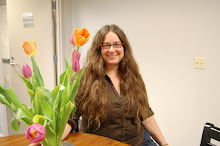I was talking with my developer at work. "It's fun to design the game," he said. "But not necessary. It's just as fun to build it." "Why?" I asked. "It's like a dish. Joy to build the dish. Joy to eat off the dish."
I felt a spurt of happiness.
I missed my father. Missed the sun-heat of an SP in their joy-action state. One foundation of my parent's marriage was my father's SP joy in doing, and my mother's NT relish in deciding what to do.
Eric Chun, the leader of my drumline in California, was like that too -- joy to fix drums, joy to carry drums, joy to play drums and march, joy to load drums in truck, joy to drive, joy to hang drums in garage, joy to eat, joy to sleep.
Joy to do.
And, trust in doing. Eric would get us to the venue hours early. Fifteen of us would sit in the parking lot and play our sticks on the asphalt, railings, curbs.
Thracka-ka-CHACK (three, four). Thracka-ka-CHACK (three, four). Thrackata-CHACKata CHACKillyata-CHACKillyata Chuh-Chuh-Chuh CHACK (three, four).We played every song in our performance, an hour and a half of it, before the show started. Eric knew with an S's surety that if you just DO something enough, eventually you'll know it.
He taught like the West African village drummers or Indian tabla masters -- you had to be able to say it, before you were allowed to play it. I have always wanted to put that in a theatre piece, that eerily precise chanting.
"How do I get good at drums?" I asked our best player, a shy thin high-school senior. "Practice," he said, turning red. "It doesn't matter what you play. It matters how much you play." He added, "Don't play on the couch though. It goes through."
I copied Eric's warm-up strategy. I often run the entire play, take an hour off, then perform it again for an audience. The actors like it, the audience likes it, I like it.
Joy to do.
Having an SP father was fun. He built us a high swingset with a trapeze and monkey bars. "Hold your arms up, Rach." That's how high the monkey bars were. He built us a 25-foot slide. A rowboat. A sailboat. A dock. A house, one room at a time, many with secret compartments. A shop. A bomb shelter. A fishtank. Desks, tables, bookcases, dressers, sinks, showers, cupboards. A rose garden. An outdoor fireplace of river stones, for night bonfires by the lake.
Once he built a shocking machine. You put two fingers on its metal prongs, someone turned the crank, and you felt the electric shock run up one finger and down the other one. He made another version with handles you held in each hand. "Turn it," he said, grasping the handles. "Jesus Christ," he said, turning white, as the shock slammed through his chest. I took the shocking machine to school for show-and-tell. Every kid lined up to get shocked. I shocked them all.
One day he brought home a kiln and clay and we all learned to pot. One day he got a fiberglass kit, so we made stained-glass-window lamps. One day he brought home a pony, and we built a corral. One day he brought home the pony's brother.
When he died, he was building a 55-foot ferro-cement ketch sailboat in the backyard. First he had to build the two-storey structure that could hold the metal whale-ribs. Then he had to weld & bend all the metal. He'd have us hold them up so he could eyeball them. "I don't think these plans are right," he'd say, taking the screaming torch to the curve.
If you are born to an SP parent, you are born an apprentice. You help with everything. You carry, sand, paint, nail, caulk, hold, measure, stain, saw, haul, lift, pull, tack, cleat, ship, bail, thread, bait, fish, gut, clean, cook, shoot, reload, cut fuses, pour gunpowder, roll firecracker, light, duck, run. BANG.
SPs love things that go BANG.
When I went inside for piano lessons, my father would sit in his car for half an hour, teaching himself harmonica.
Joy to do.





